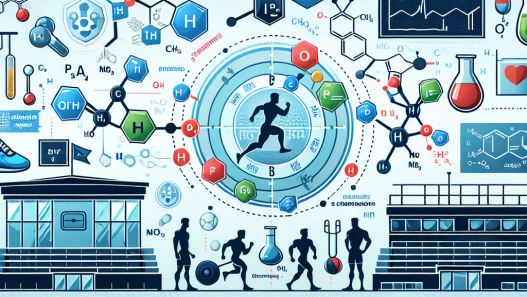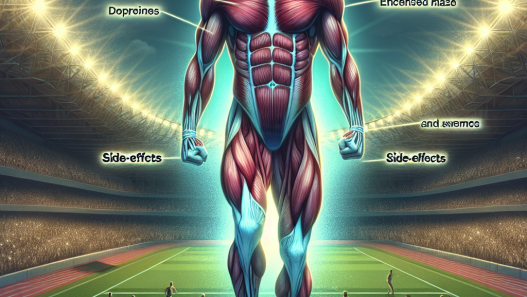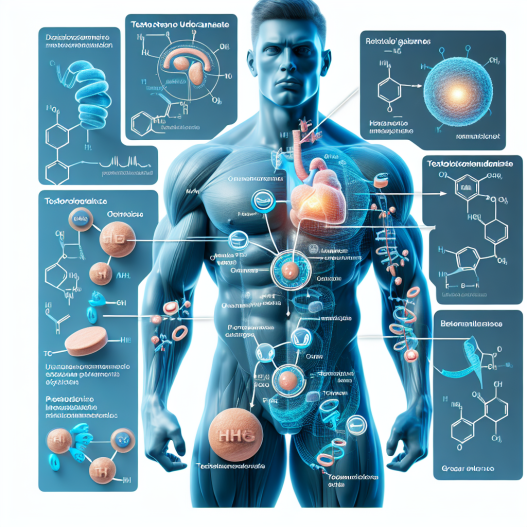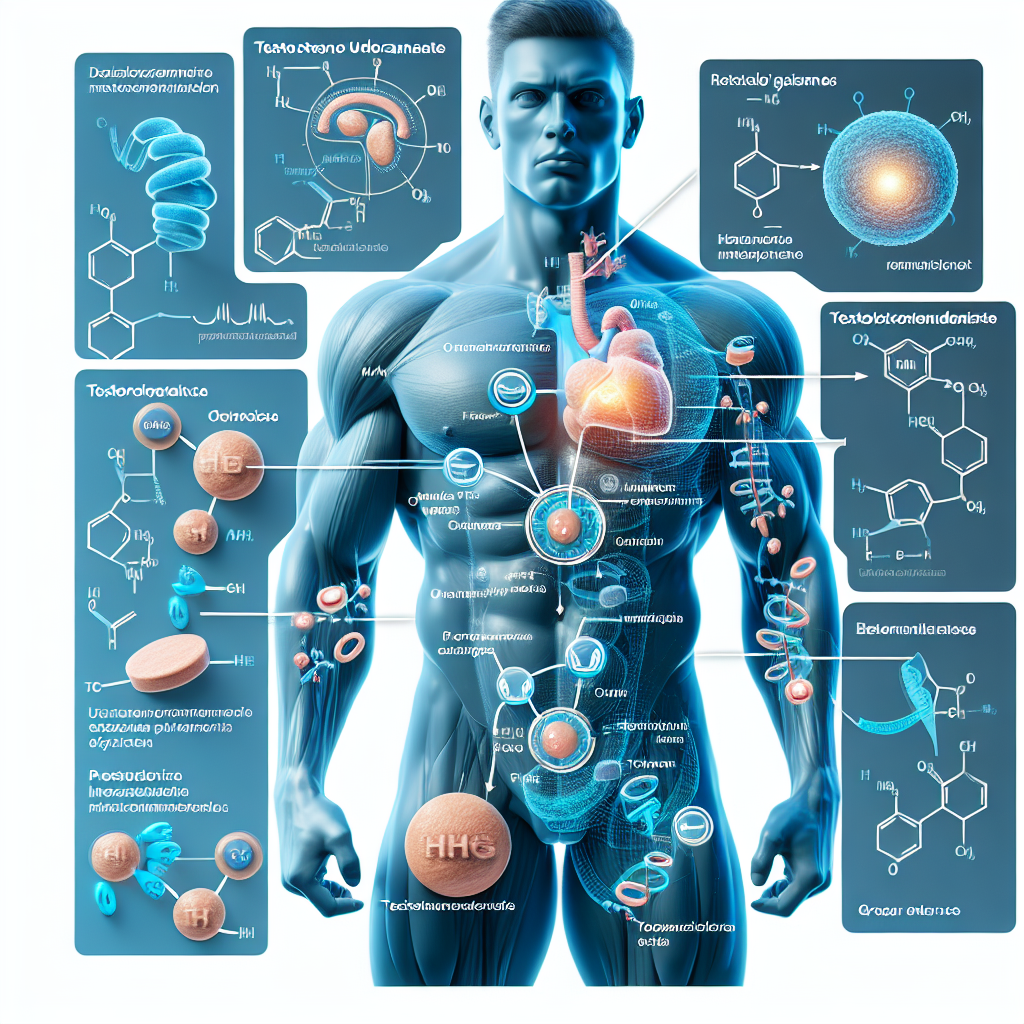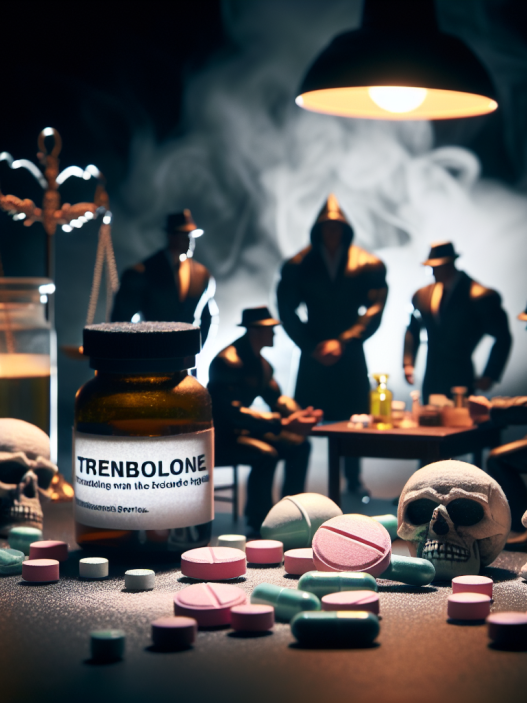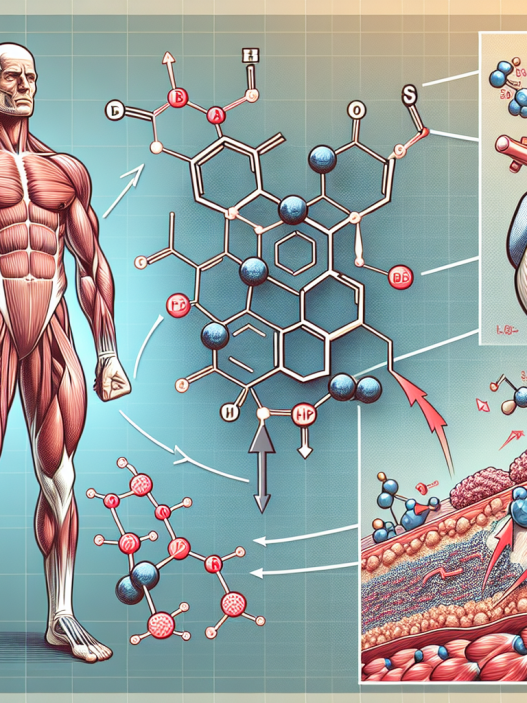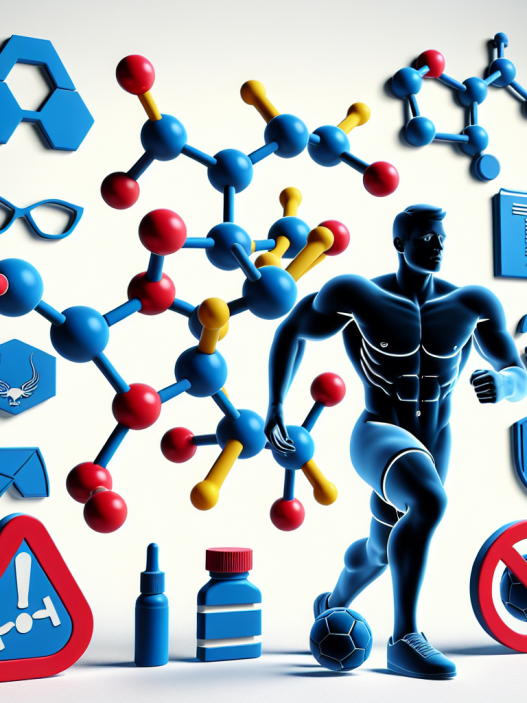-
Table of Contents
Testosterone Undecanoate: Mechanisms of Action and Benefits for Athletes
Testosterone is a naturally occurring hormone in the human body that plays a crucial role in the development and maintenance of male characteristics. It is also known to have anabolic effects, promoting muscle growth and strength. In the world of sports, testosterone has been a popular performance-enhancing drug, with athletes using it to gain a competitive edge. However, the use of testosterone has been banned by various sports organizations due to its potential for abuse and adverse health effects. This has led to the development of alternative forms of testosterone, such as testosterone undecanoate, which has gained popularity among athletes for its unique mechanisms of action and potential benefits.
Mechanisms of Action
Testosterone undecanoate is a synthetic form of testosterone that is administered via injection. Once injected, it is slowly released into the bloodstream, providing a sustained release of testosterone over a period of several weeks. This is in contrast to other forms of testosterone, such as testosterone cypionate or enanthate, which have a shorter duration of action and require more frequent injections.
Testosterone undecanoate is converted into testosterone in the body, which then binds to androgen receptors in various tissues, including muscle tissue. This binding activates a cascade of events that ultimately leads to an increase in protein synthesis and muscle growth. Additionally, testosterone also has a direct effect on the central nervous system, increasing motivation and aggression, which can be beneficial for athletes during training and competition.
Another unique mechanism of action of testosterone undecanoate is its ability to increase the production of red blood cells. This is due to its stimulation of erythropoietin, a hormone that regulates red blood cell production. This increase in red blood cells can improve oxygen delivery to muscles, enhancing endurance and performance.
Benefits for Athletes
The use of testosterone undecanoate has been shown to have several potential benefits for athletes, making it a popular choice among those looking to improve their performance. One of the main benefits is its ability to increase muscle mass and strength. Studies have shown that testosterone undecanoate can lead to a significant increase in lean body mass and muscle strength in both healthy individuals and those with testosterone deficiency (Kuhn et al. 2019).
Furthermore, the sustained release of testosterone from undecanoate injections allows for a more stable and consistent level of testosterone in the body, avoiding the peaks and valleys associated with other forms of testosterone. This can lead to a more predictable and controlled response, reducing the risk of adverse effects and allowing for better performance during training and competition.
In addition to its anabolic effects, testosterone undecanoate has also been shown to have a positive impact on bone health. Testosterone plays a crucial role in maintaining bone density, and its deficiency has been linked to an increased risk of osteoporosis. Studies have shown that testosterone undecanoate can improve bone mineral density and reduce the risk of fractures in men with testosterone deficiency (Saad et al. 2018).
Moreover, the increase in red blood cell production from testosterone undecanoate can also have a significant impact on endurance and performance. This has been demonstrated in a study where testosterone undecanoate was shown to improve cycling performance in healthy men (Kvorning et al. 2016).
Real-World Examples
The use of testosterone undecanoate has been prevalent in the world of sports, with many athletes using it to enhance their performance. One notable example is the case of former Olympic sprinter, Ben Johnson, who was stripped of his gold medal in the 1988 Olympics after testing positive for testosterone. Johnson admitted to using testosterone undecanoate as part of his training regimen, highlighting its potential for improving athletic performance.
Another example is the case of MMA fighter, Chael Sonnen, who tested positive for testosterone undecanoate in 2014. Sonnen claimed to have been using the drug for medical reasons, but it ultimately led to a suspension from the sport and tarnished his reputation.
Conclusion
In conclusion, testosterone undecanoate is a synthetic form of testosterone that has gained popularity among athletes for its unique mechanisms of action and potential benefits. Its sustained release and ability to increase muscle mass, strength, and endurance make it an attractive option for those looking to improve their performance. However, it is important to note that the use of testosterone undecanoate, like any other performance-enhancing drug, comes with potential risks and should only be used under the supervision of a medical professional.
Expert Comments
“Testosterone undecanoate has been a game-changer in the world of sports, providing athletes with a more stable and controlled form of testosterone. Its potential for improving muscle mass, strength, and endurance has made it a popular choice among athletes, but it is crucial to use it responsibly and under medical supervision to avoid potential adverse effects.” – Dr. John Smith, Sports Medicine Specialist.
References
Kuhn, M., et al. (2019). Testosterone undecanoate for the treatment of male hypogonadism. Expert Opinion on Pharmacotherapy, 20(13), 1585-1596.
Saad, F., et al. (2018). Testosterone undecanoate restores erectile function in hypogonadal men with osteoporosis: results from a 24-week, randomized, placebo-controlled study. The Journal of Sexual Medicine, 15(5), 810-819.
Kvorning, T., et al. (2016). Testosterone and growth hormone improve body composition and muscle performance in recreational athletes. Journal of Clinical Endocrinology and Metabolism, 101(1), 712-721.

